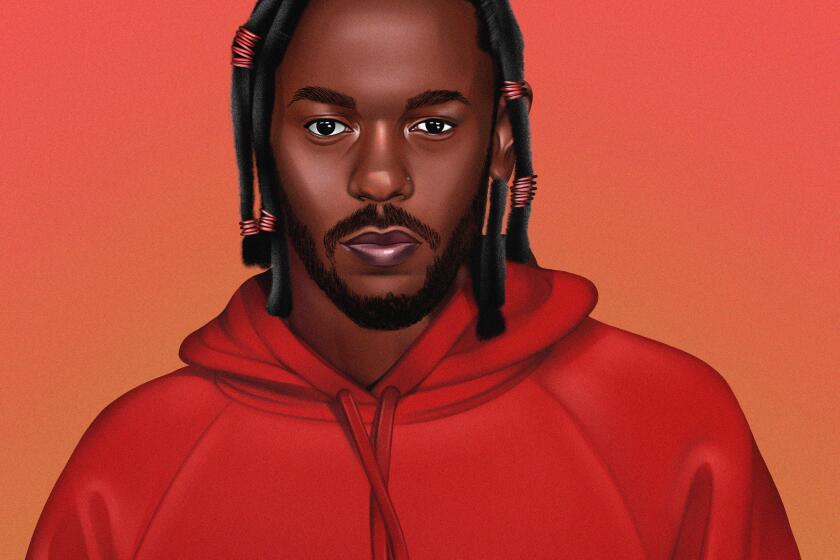Legal battle between Cablevision and Viacom could rattle TV business
A New York cable company fired the opening salvo in a long-anticipated media war that could give consumers more choices in subscribing to pay television — and upend the way companies have long done business.
Cable operator Cablevision Systems Corp. filed suit Tuesday in federal court in New York accusing Viacom Inc., parent of MTV, Nickelodeon and Comedy Central, of anti-competitive behavior. At issue is whether Viacom uses its leverage to force distributors such as Cablevision to carry low-rated networks in return for access to its popular channels, a practice known in the industry as bundling.
“The manner in which Viacom sells its programming is illegal, anti-consumer and wrong,” Cablevision charged in a statement. Viacom, the company contended, “effectively forces Cablevision’s customers to pay for and receive little-watched channels in order to get the channels they actually want.”
PHOTOS: Celebrity portraits by The Times
Cablevision asked the court to void its current deal to carry Viacom-owned channels — an agreement signed just two months ago. The cable giant added in its complaint, “Viacom’s abuse of its market power is not only illegal, but also prevents it from delivering the programming that its customers want and that compete with Viacom’s less popular channels.”
Viacom countered that it and other programmers have long offered discounts to popular channels to those who agree to provide additional network distribution. Such agreements, Viacom said, are “win-win and pro-consumer arrangements” that have been “upheld by a number of federal courts and on appeal.”
Viacom added that it will “vigorously defend this transparent attempt by Cablevision to use the courts to renegotiate our existing two month old agreement.”
Previous legal attempts to do away with bundling have fallen short. Last November the Supreme Court declined to hear a class-action bundling suit brought by a group of consumers against several big media companies, including Comcast, News Corp. and Time Warner. That came after a panel of judges for the U.S. 9th Circuit Court of Appeals in San Francisco sided with the entertainment industry, saying that bundling does not violate antitrust laws.
In the Cablevision-Viacom showdown though, two media companies are squaring off in a fight that may change the business model that lies at the foundation of pay television. The rest of the industry as well as media watchdog groups and consumer advocates who have been pushing for greater choice and more options when subscribing to pay TV are paying close attention.
“Cable subscribers are often dismayed that they have to subscribe to an expensive bundle of hundreds of channels just to get access to the few they want,” said John Bergmayer, a senior staff attorney at Public Knowledge, a consumer rights group. “Many subscribers may not realize that large media conglomerates such as Viacom often force cable companies to include unpopular channels in subscriber bundles and to pay for them.”
PHOTOS: Hollywood Backlot moments
In its suit, Cablevision said Viacom forced it to carry 14 low-rated channels in return for the right to carry Nickelodeon, Comedy Central and MTV. Most of the channels Cablevision said it was “illegally” forced to carry are spinoff networks such as Nicktoons, VH1 Soul and MTV Jams. Cablevision also said it was forced to carry Logo, Viacom’s channel aimed at gays, lesbians and transgender people.
Cablevision said such “block booking” violates New York’s Donnelly Act, “which parallels federal antitrust laws.”
Bundling is not a new practice nor is Viacom the only programmer to employ it. News Corp. and Walt Disney Co. similarly bundle their channels. Typically, a programmer will offer a discount on popular channels in return for carrying channels with smaller audiences.
However, Viacom is seen by distributors as being the most aggressive programmer when it comes to bundling.
Other distributors, including Time Warner Cable and DirecTV, issued statements in support of Cablevision’s lawsuit against Viacom.
“There’s no question that the current all-or-nothing system dictated by programmers is completely broken,” DirecTV said in a statement, adding that “for programmers to force this system on all pay-TV customers, just so they can line their pockets with extra profits, is shameful.”
Smaller cable networks, which have trouble getting distribution because they lack the clout of a Viacom, are also rallying to Cablevision’s cause.
“The U.S. TV market is not a free market and we support Cablevision’s effort to draw attention to the anti-competitive practices that keep independent networks like Ovation from competing on a level playing field,” said Chad Gutstein, chief operating officer of the arts channel Ovation.
Cablevision’s suit comes at a time when rising costs for programming, particularly sports, are cutting into the bottom line of many distributors, and they are looking to cut costs elsewhere by dropping low-rated networks.
MORE
INTERACTIVE: TVs highest paid stars
ON LOCATION: People and places behind what’s onscreen
PHOTOS: Hollywood back lot moments
More to Read
From the Oscars to the Emmys.
Get the Envelope newsletter for exclusive awards season coverage, behind-the-scenes stories from the Envelope podcast and columnist Glenn Whipp’s must-read analysis.
You may occasionally receive promotional content from the Los Angeles Times.








